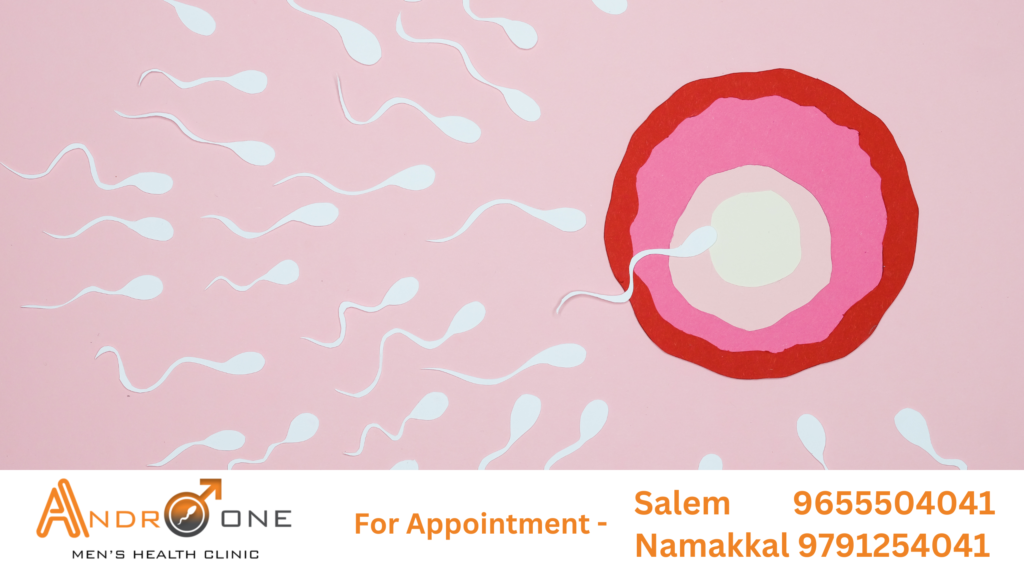Men’s sexual health is intricately linked to the delicate balance of hormones within the body. While testosterone is often considered the primary hormone influencing male sexual function, an array of other hormones also plays a significant role in regulating libido, erectile function, and overall sexual wellbeing. In this comprehensive guide, we will delve into the multifaceted role of hormones in men’s sexual health, exploring the impact of testosterone and other key hormones, as well as strategies for achieving hormonal balance to support optimal sexual function. Get more information about hormonal changes in men from the best Andrologist in Namakkal. Understanding Testosterone: The Primary Sex HormoneTestosterone, a hormone primarily produced in the testes, is fundamental to male sexual development and function. It plays a crucial role in stimulating the production of sperm, maintaining libido, and influencing erectile function. However, the influence of testosterone extends beyond sexual health, as it also contributes to muscle mass, bone density, mood regulation, and overall vitality. Fluctuations in testosterone levels can significantly impact sexual desire, arousal, and performance, making it essential to maintain a balanced and healthy testosterone profile for optimal sexual health. Beyond Testosterone: The Interplay of HormonesWhile testosterone is paramount, several other hormones contribute to men’s sexual health. For instance, dehydroepiandrosterone (DHEA), produced in the adrenal glands, serves as a precursor to both testosterone and estrogen, exerting influence on libido and erectile function. Additionally, the balance of estrogen and progesterone in men, though present in smaller amounts than in women, can also impact sexual health, contributing to mood regulation and prostate health. Furthermore, thyroid hormones, such as thyroxine and triiodothyronine, play a role in metabolism and energy levels, which can indirectly affect sexual function. Hormonal Imbalance and Sexual DysfunctionDisruptions in the delicate balance of hormones can lead to a range of sexual dysfunctions in men. Low testosterone levels, known as hypogonadism, can result in reduced libido, erectile dysfunction, and diminished sexual performance. Conversely, excess estrogen relative to testosterone, a condition known as estrogen dominance, can lead to decreased libido, fatigue, and weight gain, negatively impacting sexual well-being. Additionally, imbalances in thyroid hormones can contribute to fatigue, low energy, and reduced sexual desire. Addressing hormonal imbalances is crucial for alleviating sexual dysfunction and promoting overall vitality. Learn more about the problems from the best Andrologist in Salem. Strategies for Balancing Hormones and Enhancing Sexual HealthAchieving hormonal balance is pivotal for optimizing men’s sexual health. Several lifestyle and therapeutic interventions can positively influence hormone levels and support sexual well-being: ConclusionThe intricate interplay of hormones is fundamental to men’s sexual health, with testosterone serving as a primary influencer of libido, erectile function, and overall sexual well-being. However, the broader spectrum of hormones, including DHEA, estrogen, progesterone, and thyroid hormones, also contributes to the multifaceted nature of male sexual health. By addressing hormonal imbalances through lifestyle modifications, stress management, and, when necessary, therapeutic interventions, men can achieve optimal hormonal equilibrium and support their sexual vitality. As our understanding of the role of hormones in men’s sexual health continues to evolve, a holistic approach to hormonal balance will remain pivotal in promoting sexual well-being and overall quality of life. Consult for more to Information Clinic in Tamilnadu.

























